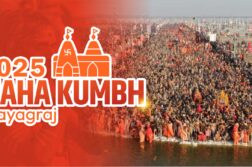Sawan, also known as Shravan, is considered an auspicious month in the Hindu calendar, dedicated to Lord Shiva. Devotees observe various rituals and fasts during this period to seek blessings and fulfill their desires. One significant observance during this month is the Fasting on Mondays falling in Shravan, which involves fasting on Monday of the Saawan month
Significance of Shravan Fasting:
The Sawan Somvar holds great significance for Lord Shiva devotees. By observing Shravan fasting with devotion and purity, one can attain the blessings of Lord Shiva and seek fulfillment of their wishes. Mondays are particularly dedicated to Lord Shiva, and fasting during Sawan brings immense spiritual merit and good fortune.
Rituals of Somvar Vrat in Shravan Month:
Intention and Purity:
Before starting the fast, devotees should purify themselves by taking a bath and wearing clean clothes. They should then set their intention (sankalpa) for observing the fast, seeking the blessings of Lord Shiva, and praying for their desired outcomes.
Fasting:
Devotees observe a strict fast on Mondays during the month of Sawan. Some people maintain a complete fast during which they refrain from consuming any food or water until they break the fast in the evening. Others may observe a partial fast, where they consume only specific fruits, milk, or light vegetarian meals.
Puja and Offerings:
After purifying themselves, devotees perform the puja (worship) of Lord Shiva. They offer water, milk, Bilva leaves (Bel Patra), Thornapples (Dhatura), Bhaang leaves, Durva Grass, fruits, and flowers to the Shiva Lingam. Devotees recite prayers, chant mantras, and sing hymns dedicated to Lord Shiva during the puja.
Abstaining from worldly pleasures:
During the fast, devotees avoid engaging in impure or distracting activities or habits like consuming non-vegetarian food, alcohol, tobacco, and other indulgences. Instead, they focus on maintaining a pure and pious state of mind, engaging in spiritual practices, and seeking the blessings of Lord Shiva.
Visiting Shiva Temples:
Many devotees visit Shiva temples on Mondays during Sawan. They offer prayers, perform the Abhishekam of the Shiva Lingam with water, curd, Chandan, honey, and milk, and seek blessings. Some pilgrims embark on a journey to the famous Shiva temples such as Rishikesh, Haridwar, Kedarnath, Badrinath, Amarnath, and Varanasi during this month with Kavads.
Observing austerities:
Some devotees take additional vows and observe austerities during the month of Sawan. They may walk barefoot, sleep on the floor, or perform other prayers and rituals to show their devotion and seek blessings from Lord Shiva.
Stories behind Shravan Fasting
Samudra Manthan Vrat Katha
The story behind Sawan fasting in Hindu mythology revolves around the churning of the cosmic ocean (Samudra Manthan) by the Devas and the Asuras to obtain the elixir of immortality (Amrit). According to the ancient texts, once there was a fierce battle between the Devas and Asuras. The Devas, fearing defeat, sought Lord Vishnu’s guidance. He advised them to form an alliance with the Asuras and churn the ocean to obtain the divine elixir. Mount Mandara served as the churning rod, and Vasuki, the serpent king, became the churning rope. As the churning began, various precious objects and divine beings emerged from the ocean. However, along with them, a deadly poison called Halahala also emerged.

To save the universe from the lethal effects of the poison, Lord Shiva drank it, but his consort, Goddess Parvati, held his throat to prevent the poison from spreading throughout his body. As a result, Lord Shiva’s throat turned blue, earning him the name “Neelkantha” (the blue-throated one). During this cosmic event, Lord Shiva also appeared as the divine healer, granting blessings and protection to those who worshiped him. The month of Sawan is believed to be the time when Lord Shiva performed the act of drinking poison and protecting the universe. Devotees observe fasting during the Mondays of the Sawan month to honor Lord Shiva and seek his blessings.
Legend of Nagraj Vasuki and Shravan Fasting
According to Hindu mythology, there was a mighty serpent king named Vasuki who resided in the depths of the ocean. Vasuki had immense devotion towards Lord Shiva and desired to have a closer connection with him. To fulfill his wish, Vasuki embark on rigorous penance and performed severe austerities. Impressed by Vasuki’s unwavering devotion and penance, Lord Shiva appeared before him and granted him a boon. Vasuki expressed his desire to adorn Lord Shiva as his sacred thread (Janeu), symbolizing their eternal bond. Pleased with Vasuki’s devotion, Lord Shiva accepted his request and transformed himself into a serpent form, allowing Vasuki to wear him as a sacred thread.

Since then, it became a tradition for devotees to offer sacred threads made of cotton or silk to Lord Shiva during the month of Sawan. These threads are considered highly auspicious and are worn by devotees around their wrists or as sacred necklaces, symbolizing their devotion and connection with Lord Shiva. The Sawan fast is observed during this month as a way to pay homage to Nagraj Vasuki and Lord Shiva. Devotees fast on Mondays and engage in various religious practices and rituals to seek the blessings of Lord Shiva and strengthen their spiritual connection.
What you can eat during Sawan Vrat?
During the Sawan fast, devotees observe different types of fasting depending on their preferences and personal beliefs. Here are some common food items that you can consume during the Sawan fast:
- Fruits: Many people choose to consume a fruit-based diet during the Sawan fast. They eat a variety of fruits such as bananas, apples, oranges, pomegranates, watermelons, and mangoes. Fruits provide essential nutrients and keep the body hydrated during fasting.
- Sabudana (Tapioca Pearls): Sabudana is a popular ingredient during fasting. People make dishes like Sabudana Khichdi (tapioca pearls cooked with potatoes, peanuts, and spices) or Sabudana Kheer (a sweet pudding made with tapioca pearls, milk, and sugar).
- Dairy Products: Milk and dairy products like yogurt (curd), paneer (cottage cheese), and buttermilk are consumable during the Sawan fast. They provide essential nutrients and help to keep the body nourished.
- Dry Fruits and Nuts: Dry fruits such as almonds, cashews, raisins, and dates are good to eat during the Sawan fast. They provide energy and essential nutrients. Some people also use dry fruits to make energy balls or laddoos.
- Sama Rice (Barnyard Millet): Sama rice, also known as vrat rice or barnyard millet, is a gluten-free grain people consume during fasting. One can make dishes like Sama Rice Khichdi or pulao with it.
- Singhara (Water Chestnut) Flour: Singhara flour is another common ingredient devotees consume during fasting. With this flour, one can prepare Singhara Atta Roti (flatbread) or Singhara Flour Halwa (a sweet dessert).
- Rock Salt (Sendha Namak): Do not consume regular table salt during fasting, and as a substitute devotees use rock salt (sendha namak) is used. It is considered pure and is allowed during fasting.




